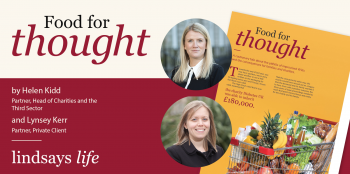On both sides of the Atlantic there’s a growing interest in postnuptial agreements – similar to a prenuptial (or ante-nuptial) agreement in intent, but made after marriage rather than before. Generally, both types will determine the division of assets if a marriage or civil partnership breaks down.
Postnups are commonly seen – especially in the US – as something to negotiate if cracks are appearing in the relationship. However, there are other good reasons to consider them:
- one spouse receives an inheritance after marriage and wants clarity over what would happen to the capital if the marriage failed;
- one spouse plans to take time out of work, and wants financial security during that period or subsequently; or,
- the spouses considered a prenup, but did not get round to it.
Like prenuptial agreements, postnuptial agreements are the subject of myths and misconceptions: primarily, that they are only for the rich; that they are not legally binding; and that they represent a lack of confidence in the future of a relationship.
In reality, a prenup or postnup may be advisable for anyone who had substantial assets before the relationship started, and can be particularly helpful for people who are entering a second marriage or have children from a previous relationship.
They are also something to consider with family businesses, helping to ensure that control of a business is preserved within the family in the event of a relationship foundering.
The second myth concerns legal enforceability. Unlike in England, prenups have been the legal norm in Scotland for centuries, and enforceability should not be an issue if a prenup or postnup is correctly drawn up by an experienced family lawyer.
Finally, in the case of the third myth – that prenups and postnups undermine a relationship – the modern reality is they can create a more solid foundation for marital and family relationships by introducing clarity and transparency.
Far from being a sign of marital weakness, a well-made pre- or postnup can signify a ‘grown-up’ approach to a relationship.
Published 24 September 2024.








